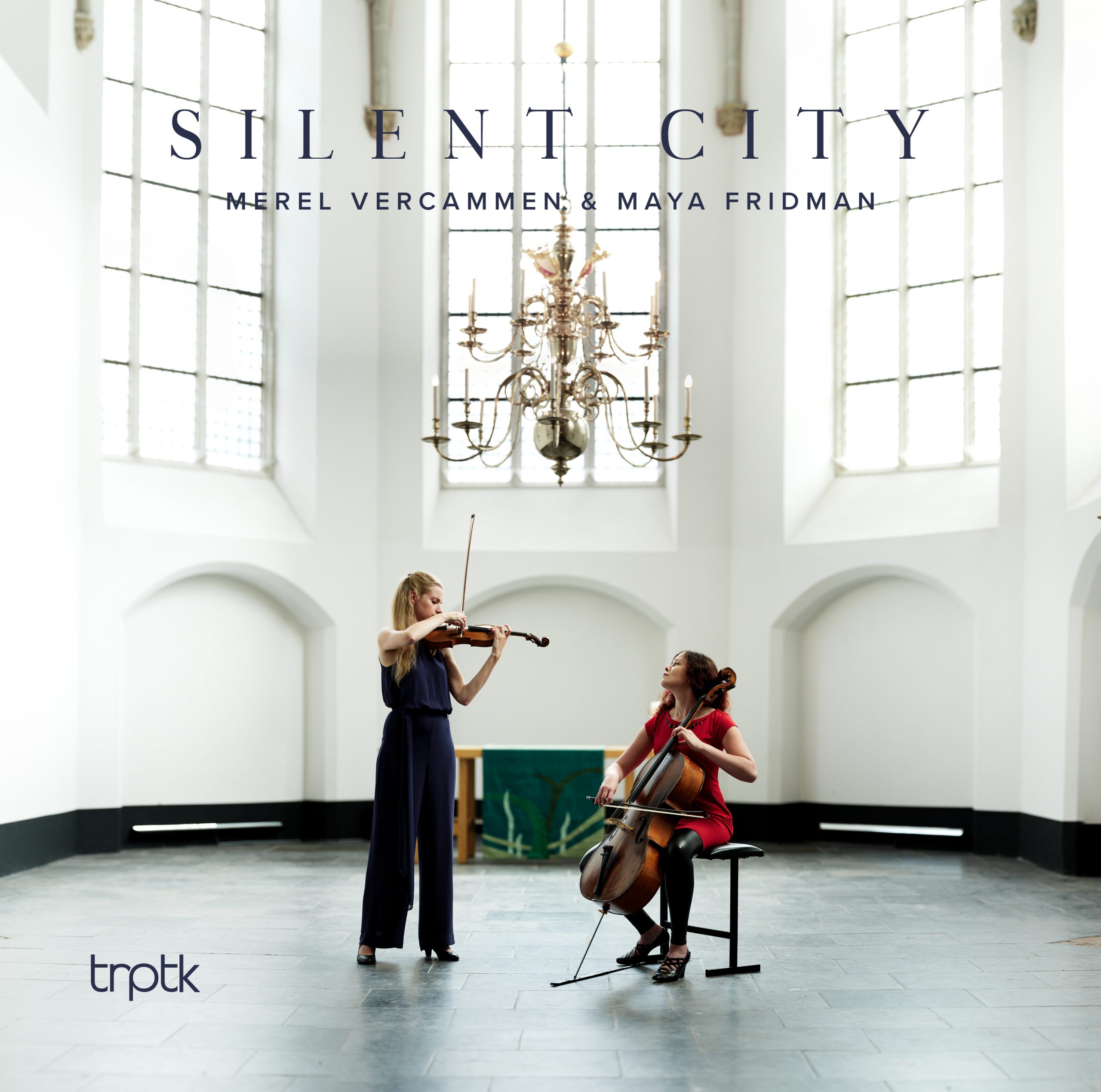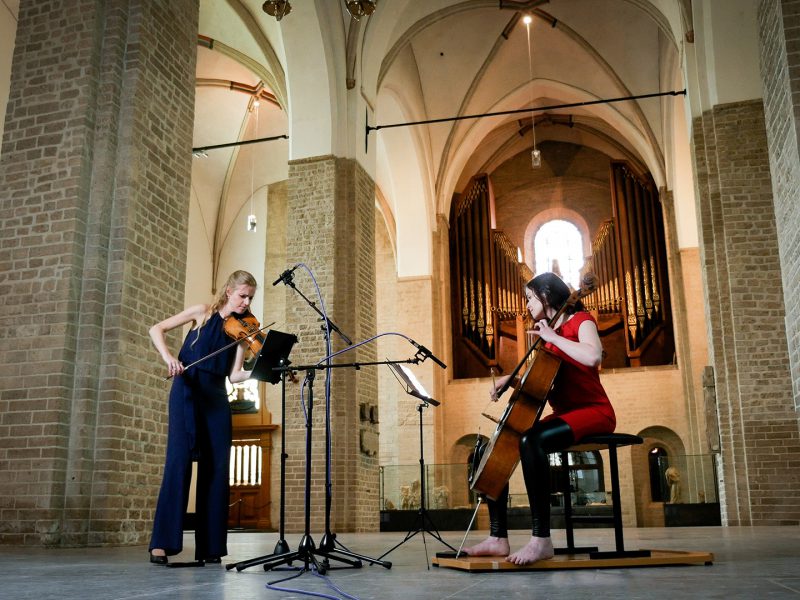A beautiful church in the city we live in, the Nicolai church in Utrecht, from which the oldest, Roman parts dated back to the 12th century, provided us with the opportunity to make music again, though without the presence of an audience.
About the album
Suddenly there was silence. Due to the coronavirus pandemic, one country after the other went into a state of lockdown in the first months of 2020. Everywhere across the globe people were confined to their homes and many had to deal with the loss of loved ones. Concerts were cancelled. Just like most musicians, our calendars were suddenly completely empty. Time and again, performances we had looked forward to had to be crossed out.
From that compulsory silence, something good had to arise. A beautiful church in the city we live in, the Nicolai church in Utrecht, from which the oldest, Roman parts dated back to the 12th century, provided us with the opportunity to make music again, though without the presence of an audience. Our goal was to create the experience of a concert, witnessed only by a couple of microphones and cameras. We wanted to create a program that would the spirit of the time: on one hand uncertainty, on the other hand reflection.
The music would also need to fit the remarkable space we found ourselves in. Only few buildings show so clearly how generations dealt with them like the Nicolai church, an inspiring place where one could also feel tiny in comparison. But once you produce sound within its walls, you immediately feel enveloped. The reverb of the church is vast. The centuries old walls talk back.
There seemed to be no more fitting piece than Castillo interior (2013) by the Latvian composer Pēteris Vasks (1946), a work with a meditative character. It’s not a programmatic piece: Vasks contrived the title only after its completion, when he had sequestered himself to a remote area to meditate. The title refers to the book Dwellings of the Interior Castle(Moradas del Castillo Interior) from 1577, the magnum opus of the mystic Theresia of Ávila.
If there should be anything that would fit those times even better, it would have to be ex tempore. On this digital EP, you will find two improvisations. Or rather, one and a half: a starting-off point for the second improvisation was Bach’s Invention in E minor (BWV 778).
Maya Fridman and Merel Vercammen
Tracklist click to play/pause
-
Pēteris Vasks
Castillo interior
13:5713:57
-
Merel Vercammen & Maya Fridman
Improvisation - Silent City
3:163:16
-
Johann Sebastian Bach (arr. Merel Vercammen & Maya Fridman)
Invention No. 7 (Reinvented)
5:245:24
More information
| Label | TRPTK |
|---|---|
| Genre(s) | Classical – Baroque (1600-1750) Classical – Contemporary (> 1920) |
| Artist(s) | Maya Fridman Merel Vercammen |
| Composer(s) | Bach, Johann Sebastian Vasks, Pēteris |
| Recording location(s) | Nikolaïkerk, Utrecht (NL) |
| Recording date(s) | May 2020 |
| Cat. No. | TTK 0067 |
|---|---|
| Release date |
July 17th, 2020 |
"Of Vasks' Castillo interior, Fridman and Vercammen turn it into something truly special."
Jan de Kruijff, Musicalifeiten
"I've heard quite a few performances of Vasks' Castillo Interior and none better than the performance given us here by Vercammen and Fridman. They well capture the inner meditative peace of the work, interrupted by the harsh clangorous demands of day-to-day life beyond the secure walls in which peace can be found. [...] The sound quality is another superb TRPTK recording. Highest recommendation!"
Rush Paul, Positive Feedback
Further reading
Related products
-
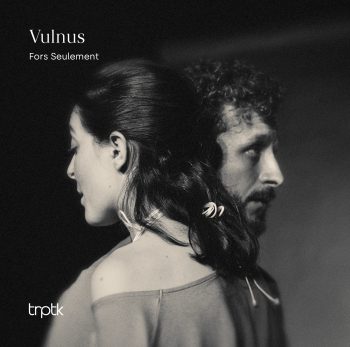
Vulnus
Fors Seulement
Hi-res Download
€ 8,50 | TTK0035 -
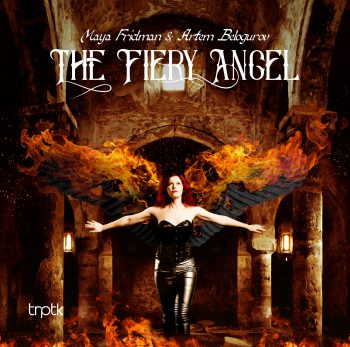
The Fiery Angel
Maya Fridman
Artem BelogurovHi-res Download
€ 8,50 | TTK0009 -
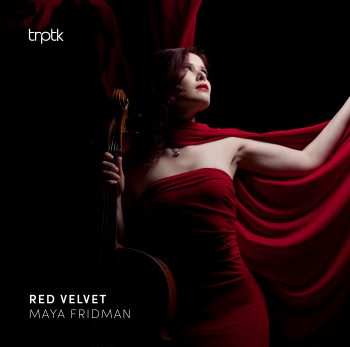
Red Velvet
Maya Fridman
Hi-res Download
€ 17,00 | TTK0011 -
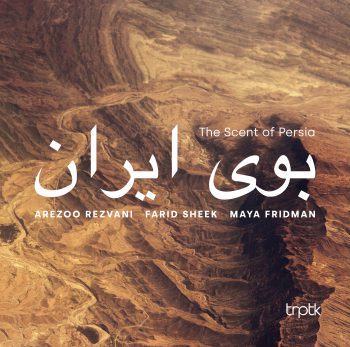
The Scent of Persia
Arezoo Rezvani
Farid Sheek
Maya FridmanHi-res Download
€ 8,50 | TTK0018 -
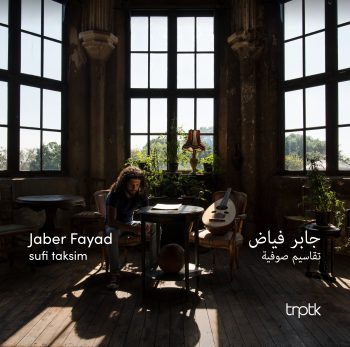
Sufi Taksim
Jaber Fayad
Hi-res Download
€ 8,50 | TTK0008 -
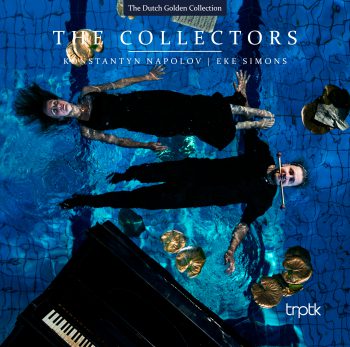
The Collectors
Konstantyn Napolov
Eke SimonsHi-res Download
€ 17,00 | TTK0027


